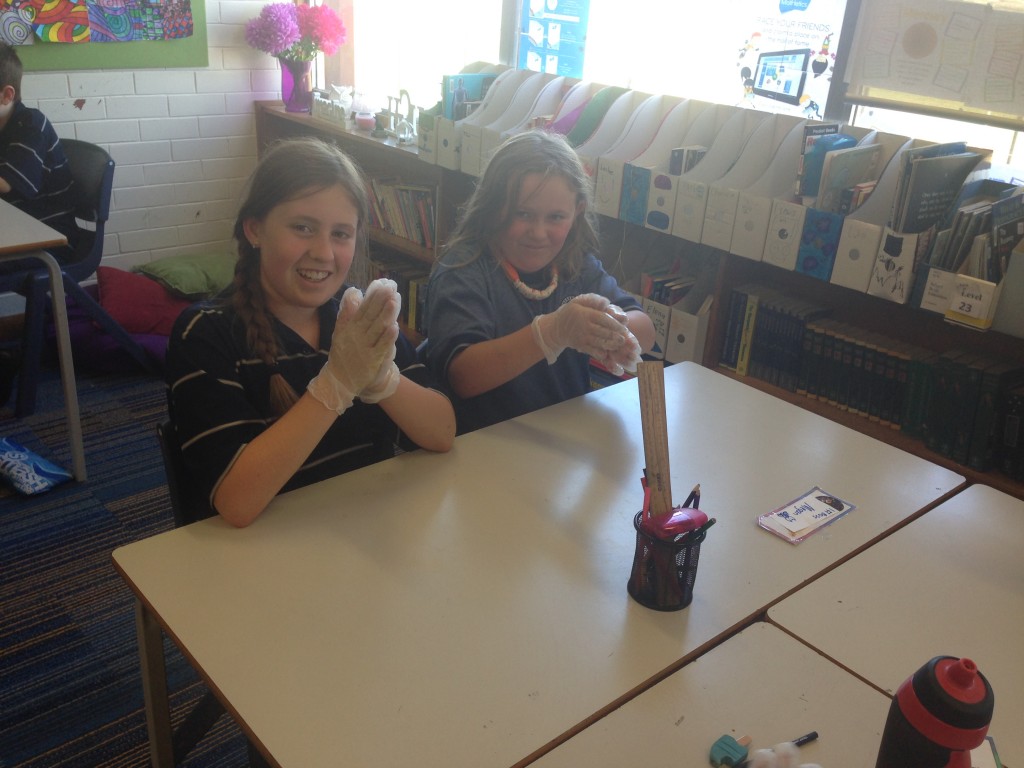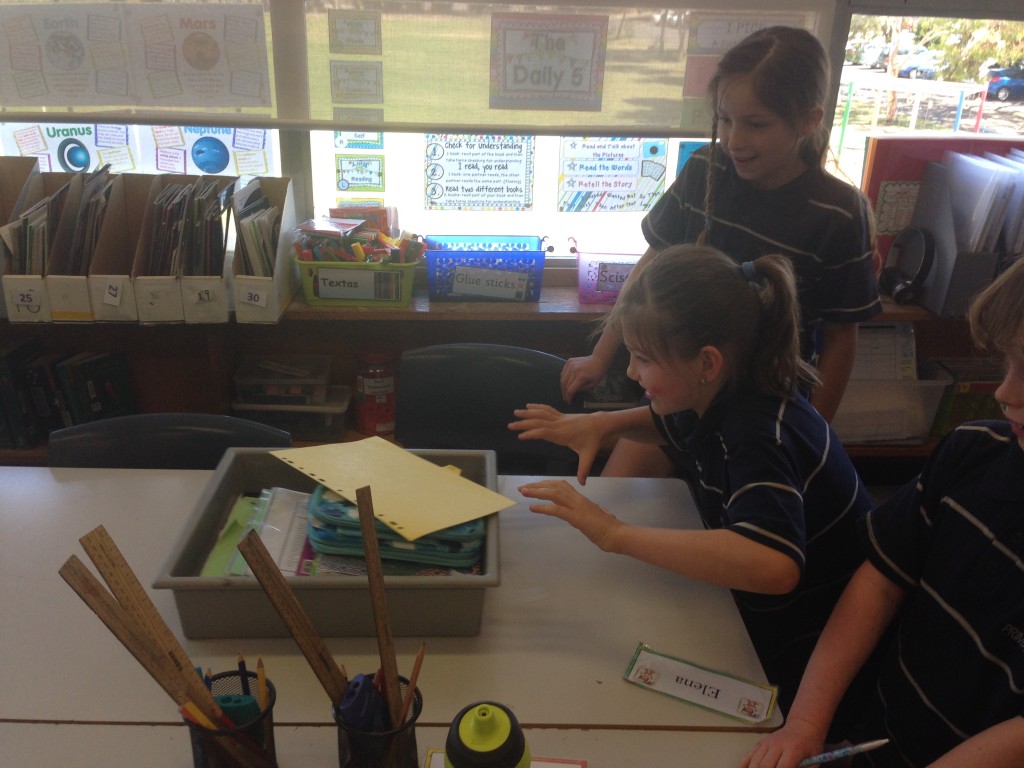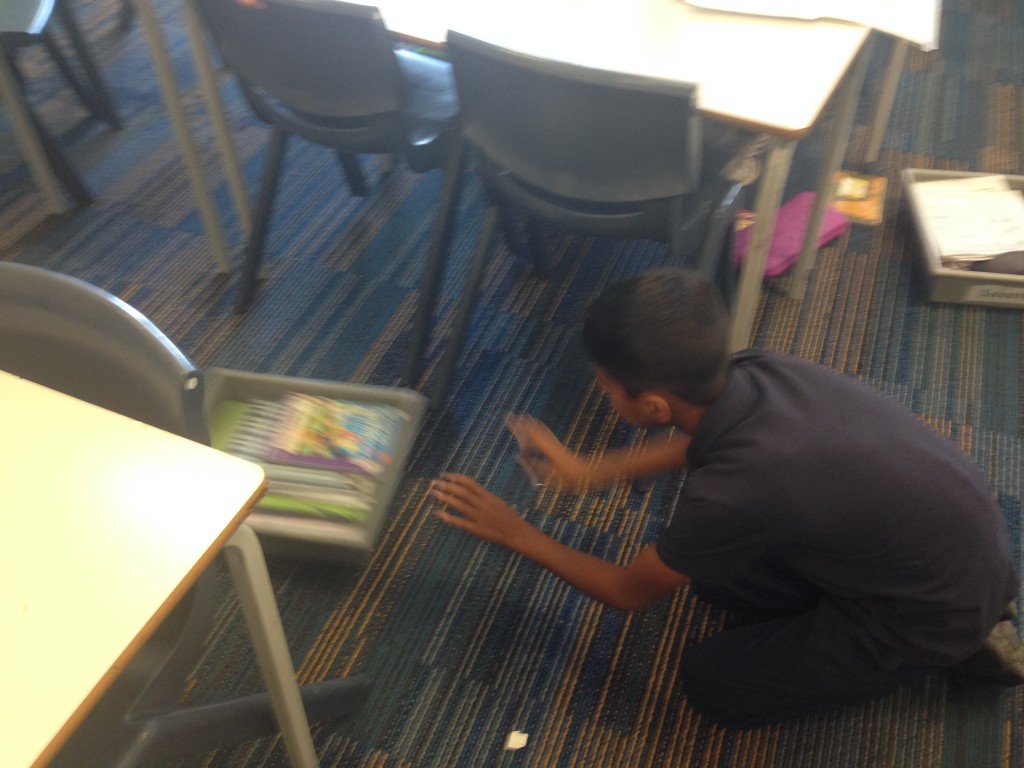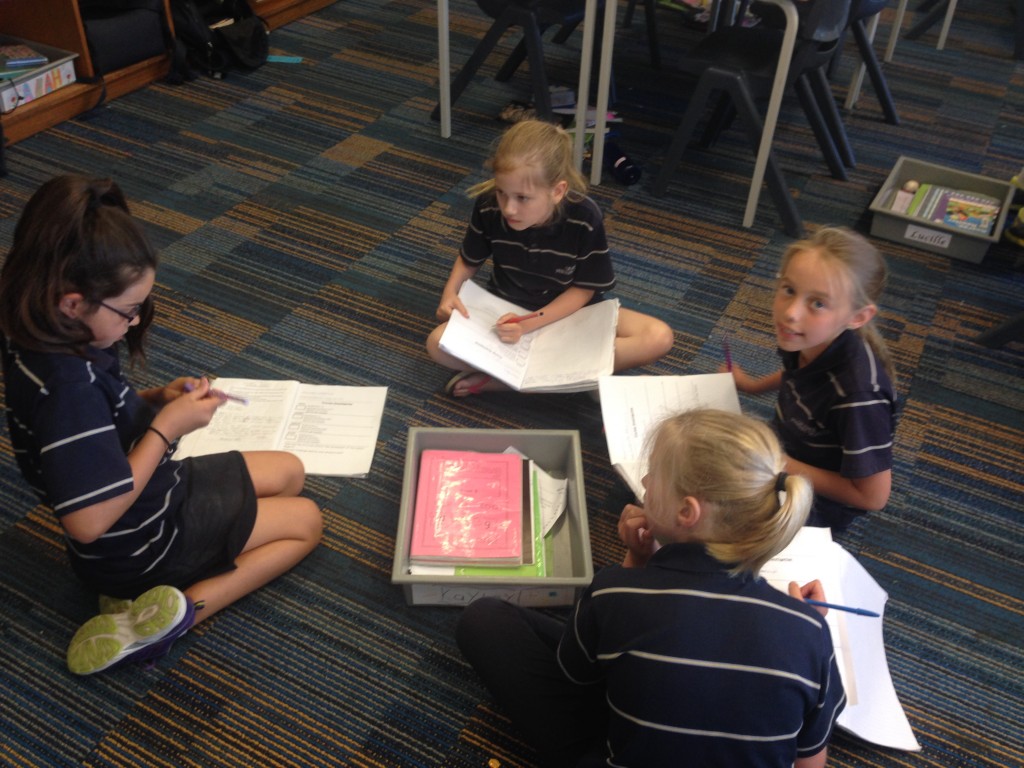Why do balls roll? Why do apples fall from the trees? Why do some things slide across ice but not on carpet? What makes our bikes stop when we brake? We use all types of forces including friction, gravity and pushes and pulls when we exercise, ride bikes and drive cars. Engineers and Scientists use their knowledge of forces and motion to design things for our homes, work and school.
Last week we looked at friction by:
- Observing how friction is different with different surfaces
- Exploring what more or less friction feels like
- Using arrows to represent frictional forces
Friction is….
Friction is what happens when any two things rub against each other causing grip.
Our first experiment involved everyone wearing rubber gloves. We then had to rub our hands together and describe what it felt like. Some of our answers included
-
rough
-
bumpy
-
slimy
-
sticky
- hands becoming hot
Then everyone was given a small sample of detergent in their hands and we had to rub our hands again with the detergent and describe what it felt like. Some of our answers included:
- slippery
- easy to move your hands
- smooth
We discussed how the material that the glove is made of enables us to feel more grip when we rub our hands together. We also talked about how there was more friction when rubbing our hands together without the detergent than with the detergent because there was more grip. The more grip we have, the more friction there is between two objects.
We then worked in small teams to investigate the friction force between different surfaces. The surfaces included:
-
table top
-
carpet
-
asphalt
-
grass
We had to predict which surface would cause the most friction before testing each one. We used our trays as a heavy item that we had to push across each surface.
Most teams found that the grass surface caused the most friction when pushing the tray and the table top having the least amount of friction occurring.
To make something move, we need to apply enough force (transfer enough energy to the object) to overcome the force of friction trying to stop that movement. This can be more difficult at times depending on the surface and object.
What did you learnt about friction?
Which surface did you find caused the most friction and why?
Can you give an example from everyday life where friction plays a role?







Dear Mrs Baldwin
It plays a role in things we do everyday. For example if there was no friction I would slip over when walking.
Today the grass caused the most friction as it was dry however if it was wet there would be less friction.
Another example would be with my gymnastic the friction between my hands and the high bar is extremely important otherwise I would lose grip and have a serious fall.
From Charlie
Dear Mrs Baldwin,
A thing I learnt about friction is that it is caused when two objects rub together making grip causing each other to stop moving.
The surface that had the most friction was the grass because it had the most grip therefore causing the most friction.
A time you use friction in daily life is when you walk because if there was no friction you would slide everywhere and you wouldn’t stop until you hit something.
From Noah.
Dear Mrs Baldwin
Friction is whet happens when any two things rub against each other causing grip.
When we were doing that investigation the grass had the most friction because it was dry.
Dear Mrs Baldwin I really enjoyed the science lesson because I thought that it was fun and interesting and did learn quite a bit about friction and I thought that the Oval would of been the easiest to push even though I did not push the tray on the Oval.
From FaTe 🙂 🙂 🙂
Dear Mrs Baldwin,
The thing I liked about the activity was the activity about the tray and glove activity was it was fun and egacatinal .
It plays a role in things we do everyday. For example if there was no friction I would slip over when walking.
Today the grass caused the most friction as it was dry however if it was wet there would be less friction.
Another example would be with my gymnastic the friction between my hands and the high bar is extremely important otherwise I would lose grip and have a serious fall.
From Olivia